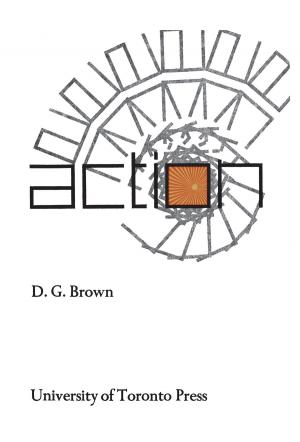Emery Bigot
Seventeenth-Century French Humanist
Nonfiction, Religion & Spirituality, Philosophy, Humanism, Biography & Memoir, Philosophers, History, France| Author: | Leonard Doucette | ISBN: | 9781442638365 |
| Publisher: | University of Toronto Press, Scholarly Publishing Division | Publication: | December 15, 1970 |
| Imprint: | Language: | English |
| Author: | Leonard Doucette |
| ISBN: | 9781442638365 |
| Publisher: | University of Toronto Press, Scholarly Publishing Division |
| Publication: | December 15, 1970 |
| Imprint: | |
| Language: | English |
Emery Bigot's life spans the most brilliant years of seventeenth-century France. He left some six hundred letters addressed to the four corners of literary Europe; among his correspondents, acquaintances, and friends were men of the stature of Jean Chapelain, Nicolaus Heinsius, Charles du Cange, Richard Simon, John Milton, and Gilles Ménage. He travelled widely and was for some forty years at the very centre pf a firmly established, smoothly functioning network of mutual assistance and scholarly information that linked the countries of western Europe. From Uppsala to Venice, from Vienna to Oxford, Leiden, London: a network which quite naturally considered Paris its centre, and whose members represented every interest, very segment of intellectual society. Bigot was also the creator of what was perhaps the most important private library of his era. Yet today he is almost unknown, and his correspondence, scattered widely, has not been examined thoroughly since his death.
This detailed biography and critical study is based on Bigot's letters and on other unpublished materials in France, Italy, Holland, Denmark, and England. Although much effort has been directed towards research on the more prominent contemporaries of Bigot, he himself – better known to the scholars of his period than a Racine, a La Fontaine, or a Molière – has gone unappreciated. Professor Doucette's book shows that Bigot represents an essential and seriously neglected side of French and European humanistic studies in the seventeenth century. Bigot's role as an outstanding classical scholar and bibliographic expert, his publications and projects for publications, his correspondence, and what is perhaps the most important facet of his activity, his collaboration with other authors in seventeenth-century Europe, all receive full and intensive coverage. This book holds special interest for scholars in several disciplines, especially historians of French literature and civilization, classicists, philologists, bibliophiles and bibliographers, and historians of religion.
Emery Bigot's life spans the most brilliant years of seventeenth-century France. He left some six hundred letters addressed to the four corners of literary Europe; among his correspondents, acquaintances, and friends were men of the stature of Jean Chapelain, Nicolaus Heinsius, Charles du Cange, Richard Simon, John Milton, and Gilles Ménage. He travelled widely and was for some forty years at the very centre pf a firmly established, smoothly functioning network of mutual assistance and scholarly information that linked the countries of western Europe. From Uppsala to Venice, from Vienna to Oxford, Leiden, London: a network which quite naturally considered Paris its centre, and whose members represented every interest, very segment of intellectual society. Bigot was also the creator of what was perhaps the most important private library of his era. Yet today he is almost unknown, and his correspondence, scattered widely, has not been examined thoroughly since his death.
This detailed biography and critical study is based on Bigot's letters and on other unpublished materials in France, Italy, Holland, Denmark, and England. Although much effort has been directed towards research on the more prominent contemporaries of Bigot, he himself – better known to the scholars of his period than a Racine, a La Fontaine, or a Molière – has gone unappreciated. Professor Doucette's book shows that Bigot represents an essential and seriously neglected side of French and European humanistic studies in the seventeenth century. Bigot's role as an outstanding classical scholar and bibliographic expert, his publications and projects for publications, his correspondence, and what is perhaps the most important facet of his activity, his collaboration with other authors in seventeenth-century Europe, all receive full and intensive coverage. This book holds special interest for scholars in several disciplines, especially historians of French literature and civilization, classicists, philologists, bibliophiles and bibliographers, and historians of religion.















